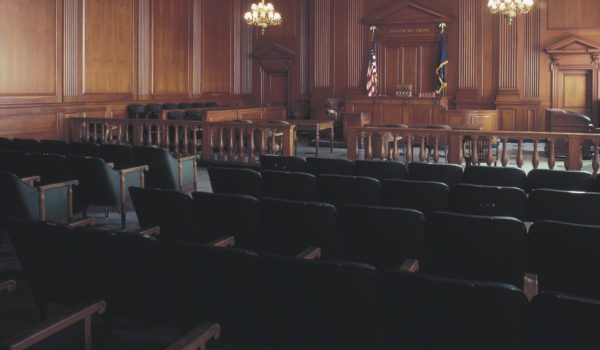California employers face substantive exposure to penalties and attorney’s fees for wage statement violations, which typically take place where there is flawed pay stub or pay substantiation in noncompliance with Labor Code dictates. In 2022, the California Supreme Court decided that employers could face substantive as well as attorney’s fees exposure due to extra pay for meal and rest breaks, which constitute wages that must be reported on employment wage statements and can give rise to penalties. (Naranjo v. Spectrum Security Services, Inc. (2022) 13 Cal.5th 93, 102, relying on Labor Code section 218.5(a).)
Now, employers can breathe a sigh of relief in light of the Second District Court of Appeal’s decision in Naranjo v. Spectrum Security Services, Inc. (2d Dist., Div. 4 Feb. 27, 2023) Case No. B256232 [certified for publication]. On remand, the Second District took some of the sting out of wage statement penalties and fee exposure with its Naranjo decision by holding that employers can avail themselves of a “good faith dispute defense” to penalties for alleged Labor Code violations.
Background
In the wake of the California Supreme Court’s 2022 decision in Naranjo, Division 8 of the Second District Court of Appeal reversed its prior conclusion that attorney’s fees exposure was unavailable for meal/rest break wage statement violations, affirming an award of nearly $290,000 in fees and costs in favor of the plaintiff, who settled all claims for $15,375, and demonstrating that no proportionality analysis necessarily governs in this context. (See Betancourt v. OS Restaurant Services, Inc. (2022) 83 Cal.App.5th 132.) The California Supreme Court’s decision in Naranjo and the Court of Appeal’s decision in Betancourt understandably sent alarm signals to California employers on these issues. However, Division 4 of the Second District then had to deal with Naranjo on remand from the California Supreme Court.
A “Good Faith” Defense is Now Available to California Employers
On remand from the California Supreme Court, the Second District in Naranjo had to revisit its opinion given that the supreme court determined that missed-breaks premium pay constitutes “wages” that must be reported on statutorily required wage statements during employment under Labor Code section 226. The California Supreme Court expressly remanded so that Division 4 of the Second District could consider whether the employer had acted willfully in failing to pay missed-break premium pay (an essential element for penalty recovery under Labor Code section 203(a)) and whether the employer’s failure to report premium pay was knowing and intentional (a necessary penalty element under section 226(e)(1), (3)). This was necessary because the trial judge earlier had awarded $399,950 in wage statement penalties after finding the omissions were “knowing and intentional,” while also awarding substantial attorney’s fees to class counsel under section 226. Both sides submitted supplemental briefings to Division 4 of the Second District.
The employer obtained a reversal of the penalties relating to wage statements and failing to pay missed-break premium pay on time.
With respect to penalties under Labor Code section 203, the Naranjo appellate court on remand agreed with the lower court’s conclusion that the employer’s failure to pay meal period premium wages was not “willful.” The Second District rejected the employee’s argument that California regulations clarifying that “willful” requires the absence of a good faith dispute is only limited to Labor Commissioner hearings. It reviewed the record and determined that the employer had potential defenses such as a federal enclave defense and the intergovernmental immunity doctrine. Given that there was some evidence to support these defenses, even though they were unsuccessful in the end, the testimony proffered by the employer was enough to establish the existence of a good faith dispute.
Determining that the defenses were made in good faith, the Naranjo appellate court went further by reversing the lower court’s imposition of section 226 penalties. It found the same good faith dispute standard governed “willful” determinations under section 203 and “intentional and knowing” determinations under section 226, endorsing the reasoning from California federal decisions and In re Trombley (1948) 31 Cal.2d 801, 807-808. Not to be ignored was the fact that the California Supreme Court’s opinion in Naranjo did not come down until 2022 to finally resolve the “wages” interpretive issue. Until that point in time, employers could not possibly have known the premiums would be deemed wages, buttressing the good faith nature of their actions.
Implications for Employers
Given that employers were rightfully concerned by the end results of the 2022 Naranjo and Betancourt decisions, the 2023 remand opinion in Naranjo gives employers some arrows to present good faith dispute defenses in these labor penalty areas, not to mention the defense that liability was unclear until the California Supreme Court’s 2022 opinion came down. However, employers can avoid liability by adopting preventative handbook and paycheck practices which pay all wages to employees in the first instance. For more information, contact the authors of this article or any member of Frost Brown Todd’s Labor & Employment Practice.

